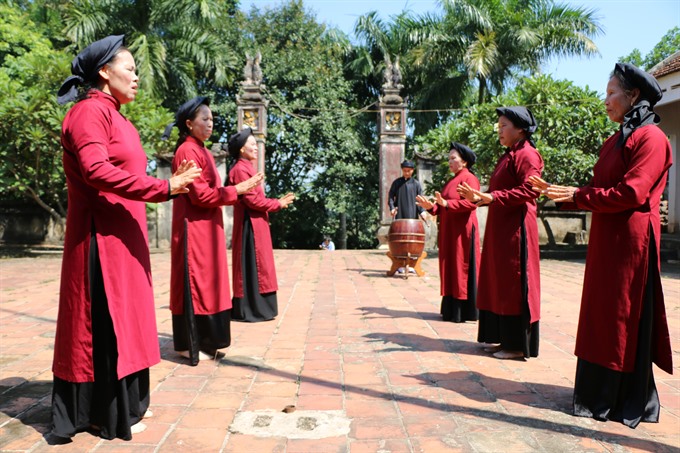 Life & Style
Life & Style

Xoan singing from the northern province of Phú Thọ has been added to the United Nations Educational, Scientific and Cultural Organisation's (UNESCO) list of intangible cultural heritage of humanity. This came just one day after the art of bài chòi was included.
 |
| Ancient art: Xoan singing from the northern province of Phú Thọ in Việt Nam has been upgraded by UNESCO. — VNS Photo Đoàn Tùng |
HÀ NỘI —Xoan singing from the northern province of Phú Thọ has been added to the United Nations Educational, Scientific and Cultural Organisation’s (UNESCO) list of intangible cultural heritage of humanity.
The decision was announced on Friday during UNESCO’s 12th session of the Intergovernmental Committee for Safeguarding Intangible Cultural Heritage, held on South Korea’s Jeju Island. In 2011, xoan singing had been listed as cultural heritage in need of urgent safeguarding.
After six years strictly ensuring its commitments to UNESCO, the community and authorities in Phú Thọ Province compiled files to submit to UNESCO. At Friday’s session, 24 states on the Intergovernmental Committee said they appreciated the province’s efforts in preserving the heritage and upgraded the art form.
Xoan singing is the eleventh heritage item to be listed in Việt Nam. The others include the art of bài chòi in central Việt Nam; practices related to the Việt beliefs in the mother goddesses of three realms; tug-of-war rituals and games; ví and giặm folk sings of Nghệ Tĩnh; the art of đờn ca tài tử music and song in southern Việt Nam; worship of Hùng Kings in Phú Thọ; Gióng festival of Phù Đổng and Sóc Temples; quan họ Bắc Ninh folk songs; nhã nhạc, Vietnamese court music and space of gong culture.
Việt Nam also has ca trù singing inscribed on the list of intangible cultural heritage in need of urgent safeguarding.
UNESCO’s recognition of Việt Nam’s xoan singing and the art of bài chòi have important meanings in promoting the nation’s diversified cultures.
Like other previous recognised heritages, the new inclusions will create more favourable conditions for the socio-economical and cultural development of the heritage regions.
Attending the meeting, deputy minister of Culture, Sports and Tourism and also vice-president of UNESCO Việt Nam, Đặng Thị Bích Liên, and representatives of the provinces with recognised heritages agreed on specific plans to preserve heritage, integrating them into community’s daily life and promoting Việt Nam’s unique culture among international friends.
Xoan singing is practised in Phú Thọ Province, often during the first two months of the lunar year. Traditionally, singers perform songs in sacred spaces such as temples, shrines and communal houses for the spring festivals.
There are three forms of xoan singing: worship singing for the Hùng kings and village guardian spirits; ritual singing for good crops, health and luck, and festival singing where villagers alternate male and female voices in a form of courtship. — VNS